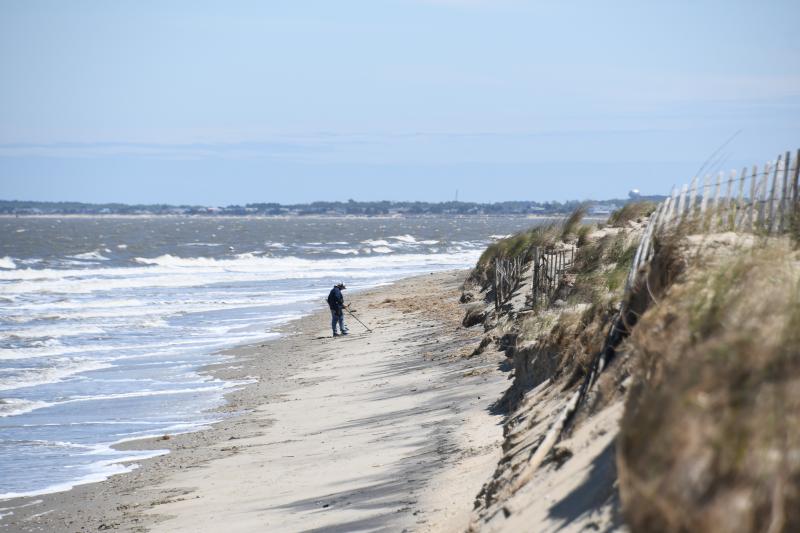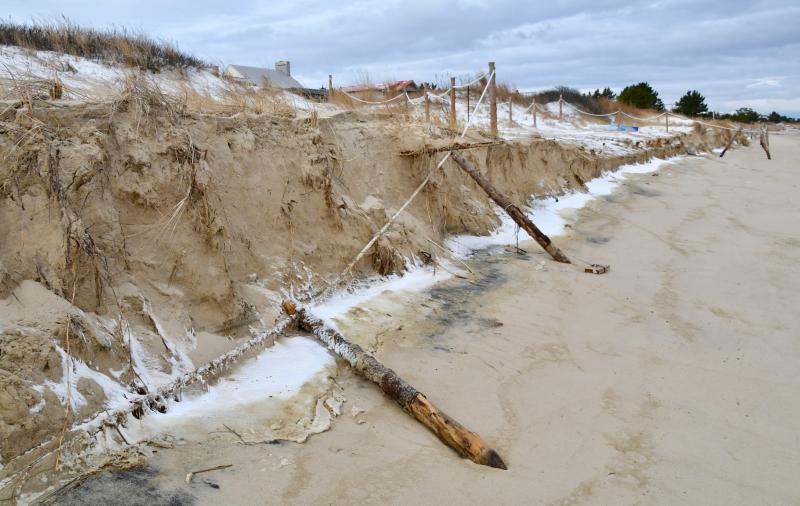Association is voice of Bayshore beaches, towns

The Bay Beach Association is seeking funds to continue its work and hire a consultant to address available funding in the recently passed Water Resources Development Act to mitigate ongoing issues experienced along the 27-mile Delaware Bayshore.
Spokesman Ted Becker of Lewes said the association comprises the incorporated towns of Lewes, Bowers and Slaughter Beach, and all other unincorporated areas such as Broadkill, South Bowers, Kitts Hummock and Pickering Beach. Most of the 27 miles of shoreline is in Sussex County.
“We want to speak with a united voice to make sure our interests and concerns are recognized, and work with our federal officials to identify available funding,” he said.
The legislation authorizes emergency funding for repairs and restoration by the U.S. Army Corps of Engineers for flood control, water supply and wastewater infrastructure, navigation, and shoreline enhancement and restoration over the next 10 years. It also provides funds for a feasibility study on dredged material from the bay. Becker said one of the major provisions is a change in the way projects are funded. Currently, 65% of funds are federal and 35% are state funds for Army Corps projects. That's been changed to 90% federal and 10% state funding.
During a Jan. 10 presentation to Sussex County Council, Becker asked county officials for a $30,000 donation. He said Kent County Levy Court has pledged $30,000, and each of the towns has pledged $1,000. The funds are administered by the Greater Lewes Foundation.
County Finance Director Gina Jennings said since the funding is not budgeted, it would have to be taken out of the county's contingency funds. County Administrator Todd Lawson said the request would be placed on a future agenda for council action.
About the association
The goals of the association are to ensure bayshore communities become more resilient, and infrastructure, such as drinking water and wastewater systems, is hardened to protect against storm surges; to partner with federal and state agencies working to protect Delaware's two primary economic drivers – agriculture and tourism; and to advocate on behalf of the Delaware Bay and near-shore agricultural communities to confront challenges posed by climate change, including sea-level rise, coastal storms, wildfires and saltwater intrusion.
Becker said so far, the association has successfully gained the attention of federal and state agencies by discussing decades-long neglect of bay beaches, protective dunes and marshes, and hired a consultant who was instrumental in helping write the Water Resources Development Act, which is critical to maintaining Delaware's coastline.
Becker said the next steps for the association include establishing quarterly planning meetings with the state's congressional delegation, state legislators, Sussex County Council and Kent County Levy Court, community leaders, the Army Corps of Engineers, Department of Natural Resources and Environmental Control, and other interested groups.
Benefits for Delaware
Delaware's federal delegation, headed by Sen. Tom Carper, legislation co-author and chair of the Senate Committee on Environment and Public Works, played a key role in passage of the act in late December.
How the act will benefit Delaware:
Protects beaches and shorelines from the threat of climate change by:
• Updating the Army Corps’ emergency authorities to provide greater support to Delaware’s beaches following hurricanes, nor’easters and other damaging storms
• Expanding existing programs to fast-track the development and construction of shoreline, riverbank and streambank protection and restoration projects in Delaware
• Making shoreline protection more affordable for the bay beaches.
Improves water resource research by:
• Authorizing the Army Corps to enter into contracts, cooperative agreements, grants and other transactions with the University of Delaware to conduct academic research on areas including water resource ecology, water quality, aquatic ecosystem restoration, coastal restoration research and water resource-related emergency management.
Invests in municipal environmental infrastructure programs by:
• Authorizing individual environmental infrastructure programs supporting drinking water, wastewater and stormwater infrastructure for Kent County, Sussex County and New Castle County at $35 million each.
Prioritizes equity in the Corps’ Civil Works Program by:
• Lowering project costs for shoreline, riverbank and stream bank protection and restoration in economically disadvantaged communities
• Creating a new workforce development and STEM outreach program with priority given to economically disadvantaged communities
• Authorizing the Army Corps to waive the cost of technical assistance for economically disadvantaged communities.





















































